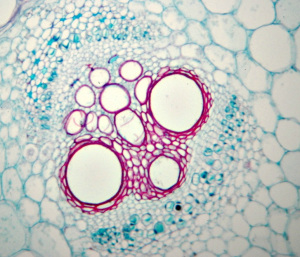Is doubt a necessary by-product of wonder? This is the second part of my interview with theoretical physicist Rhoda Hawkins (part 1). For Rhoda, the intellectual grappling she enjoys in science is also there in her Christian faith. Wondering, or thinking at a deeper level, is crucial to both.
I love seeing wonder in other people. Sometimes I get to watch the light dawning on a student’s face as they come to understand something for the first time, or it’s a shared experience of wonder with a research student or a colleague. Sometimes those moments are too rare, but if I got them all the time I would take them for granted. Even the struggle is contributing to that sense of wonder, because it’s more amazing if it’s difficult and complicated. If climbing the mountain was too easy, then you wouldn’t feel so happy when you got to the top. It’s more of a long-term picture.
I most often feel wonder when I’m at a conference listening to somebody else describing their research. I’m amazed by what I learn about the problem they’re working on, and what they’ve done in understanding it. I find that inspirational for my own work, even if it’s not directly relevant. Seeing other people’s results encourages me that we could make some progress in what we’re doing. If I haven’t been to a conference for several months and I’ve been struggling with a difficult research problem during that time, I can find myself getting a little bit dry. I look forward to going to a conference so I can be reminded of the bigger questions that we’re all searching to answer.
As a Christian I attribute that sense of wonder in science to God. He made the particular system I’m working on, so my wonder turns to worship. Wonder in the questioning sense – wondering – is also absolutely crucial to my experience of Christianity. I always have some doubts, because I’m the sort of person who likes to think about things at a deeper level. I remember helping my younger sister with some maths when she was at school, and she said to me, ‘I don’t understand why you like maths, it just makes my brain hurt!’ I understand what she means. Maths makes my brain hurt too, but I love the challenge. In some ways, the doubts I have about my faith are similar: I enjoy grappling with them. Yes it makes my brain hurt, and it can give me problems or mini-crises in my faith, but I enjoy that process because I come out at the end of it with a stronger faith.
I remember being impressed as a young child by some of the older people in my church who were in their eighties. They had been Christians for decades, which seemed such a long time to me then. I was amazed that they were still Christians, and still asking questions. After all that time they had not understood everything there is to know about God. I found the idea that I could spend years and years learning about God and still not know it all really exciting. It’s like an adventure where you don’t know what’s around the corner.
This article was originally published in the newsletter of Christians in Science, and is reproduced here with permission. Part 1 here.





